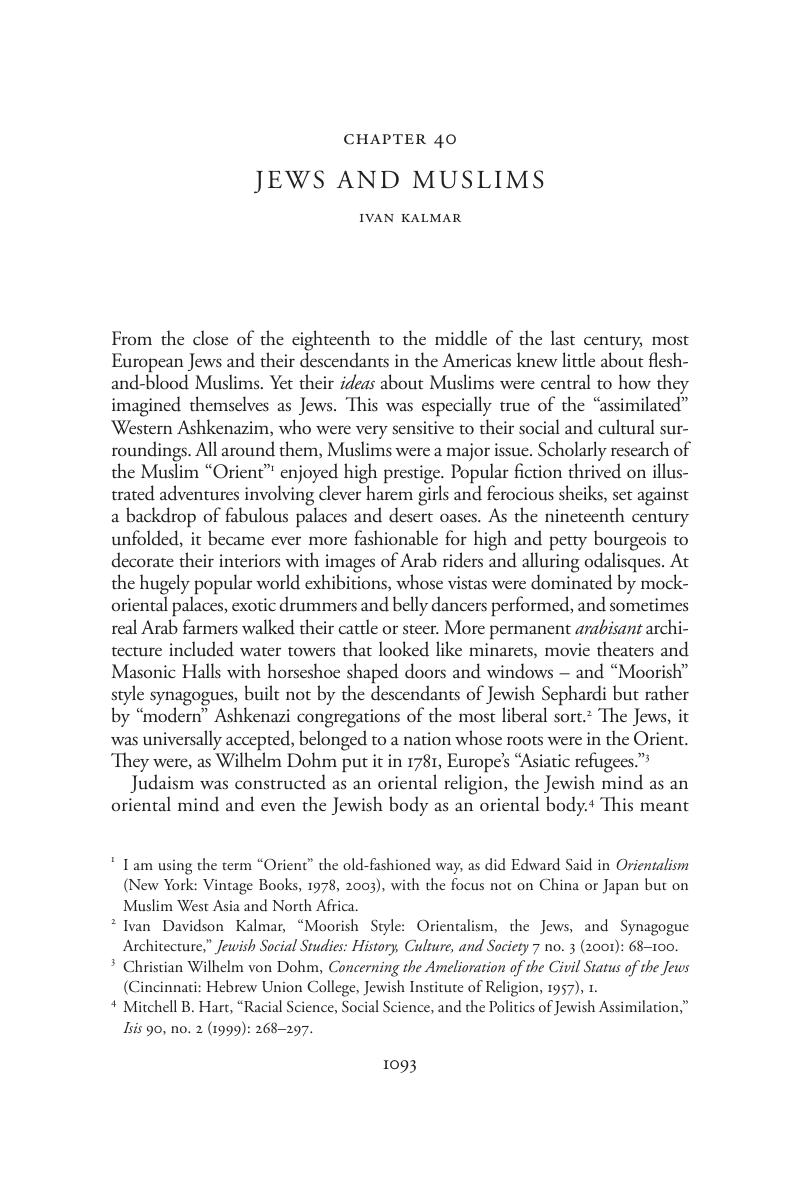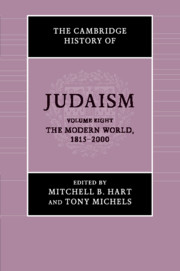Book contents
- The Cambridge History of JudaismVolume Eight
- The Cambridge History of Judaism
- The Cambridge History of Judaism
- Copyright page
- Contents
- Acknowledgments
- Introduction
- Part I History and Geography
- Part II Emancipation:
- Part III Jewish Cultures, National and Transnational
- Part IV Jews in the Modern World
- Chapter 33 The Dynamics of Modernity
- Chapter 34 In Search of Authenticity
- Chapter 35 Gender and the Re-Making of Modern Jewry
- Chapter 36 Jews and Science
- Chapter 37 Kabbalah in the Modern Era
- Chapter 38 Orthodoxy and Ultra-Orthodoxy as Forces in Modern Jewish Life
- Chapter 39 Jews and Christianity
- Chapter 40 Jews and Muslims
- Index
- References
Chapter 40 - Jews and Muslims
from Part IV - Jews in the Modern World
Published online by Cambridge University Press: 21 September 2017
- The Cambridge History of JudaismVolume Eight
- The Cambridge History of Judaism
- The Cambridge History of Judaism
- Copyright page
- Contents
- Acknowledgments
- Introduction
- Part I History and Geography
- Part II Emancipation:
- Part III Jewish Cultures, National and Transnational
- Part IV Jews in the Modern World
- Chapter 33 The Dynamics of Modernity
- Chapter 34 In Search of Authenticity
- Chapter 35 Gender and the Re-Making of Modern Jewry
- Chapter 36 Jews and Science
- Chapter 37 Kabbalah in the Modern Era
- Chapter 38 Orthodoxy and Ultra-Orthodoxy as Forces in Modern Jewish Life
- Chapter 39 Jews and Christianity
- Chapter 40 Jews and Muslims
- Index
- References
Summary

- Type
- Chapter
- Information
- The Cambridge History of Judaism , pp. 1063 - 1092Publisher: Cambridge University PressPrint publication year: 2017

